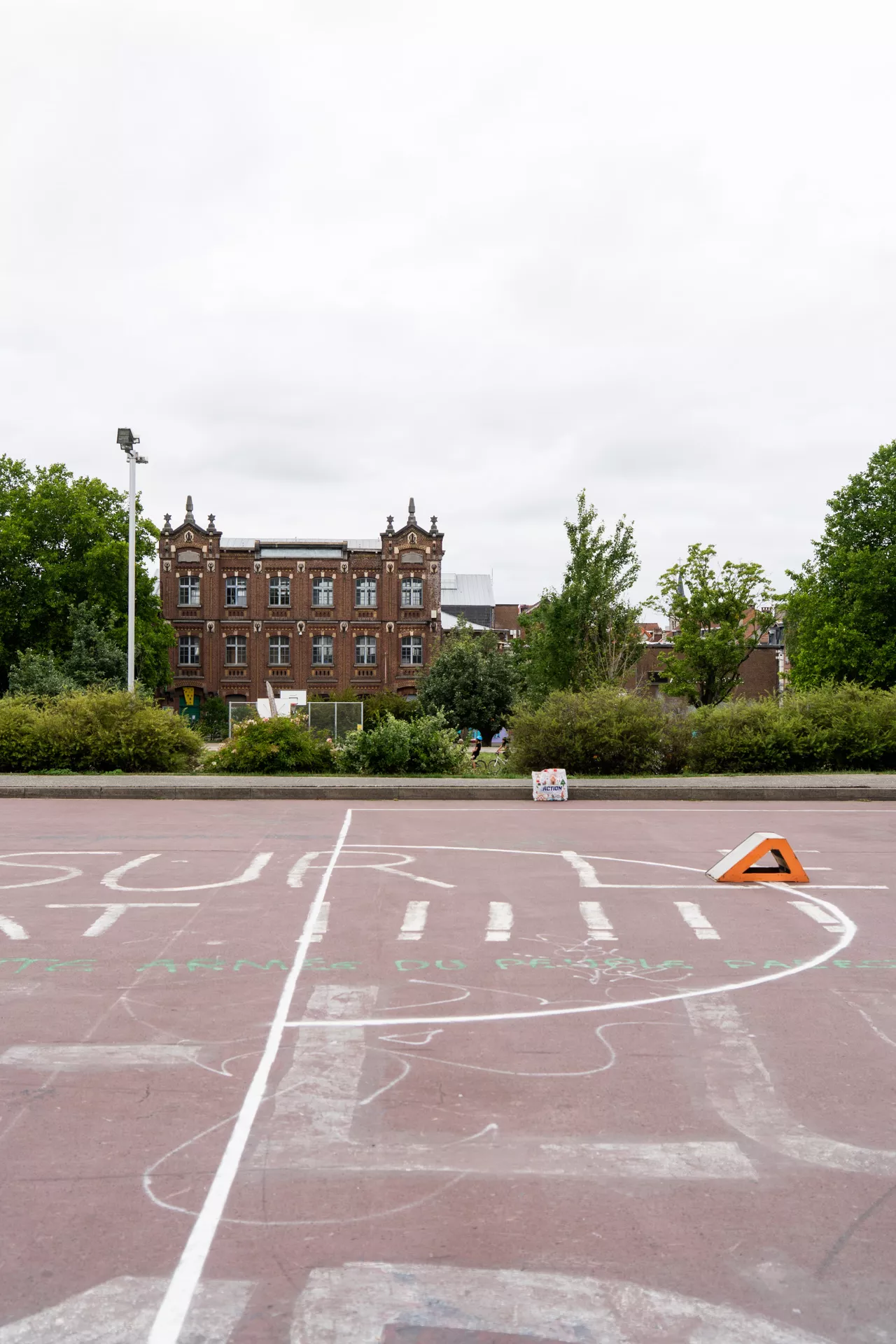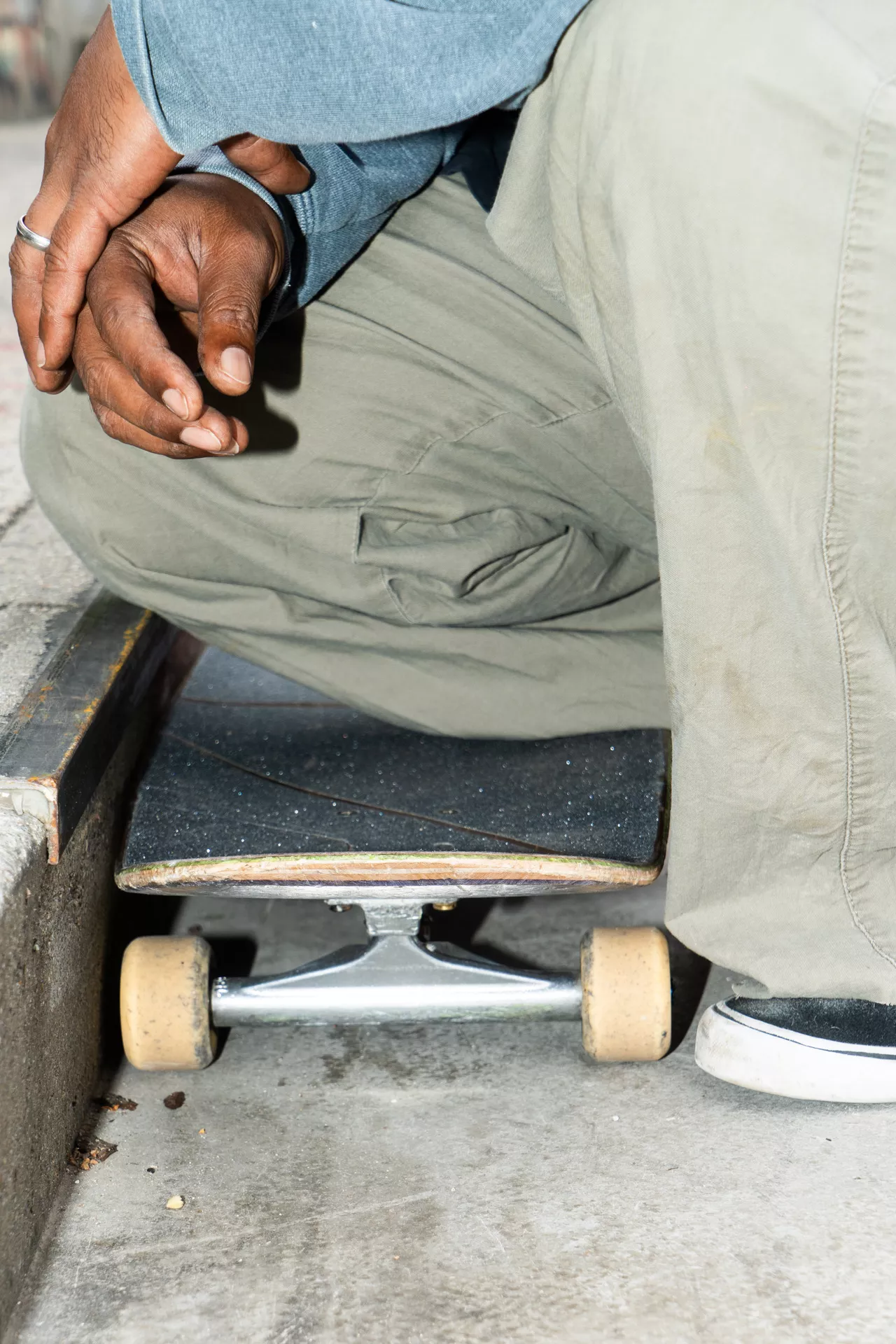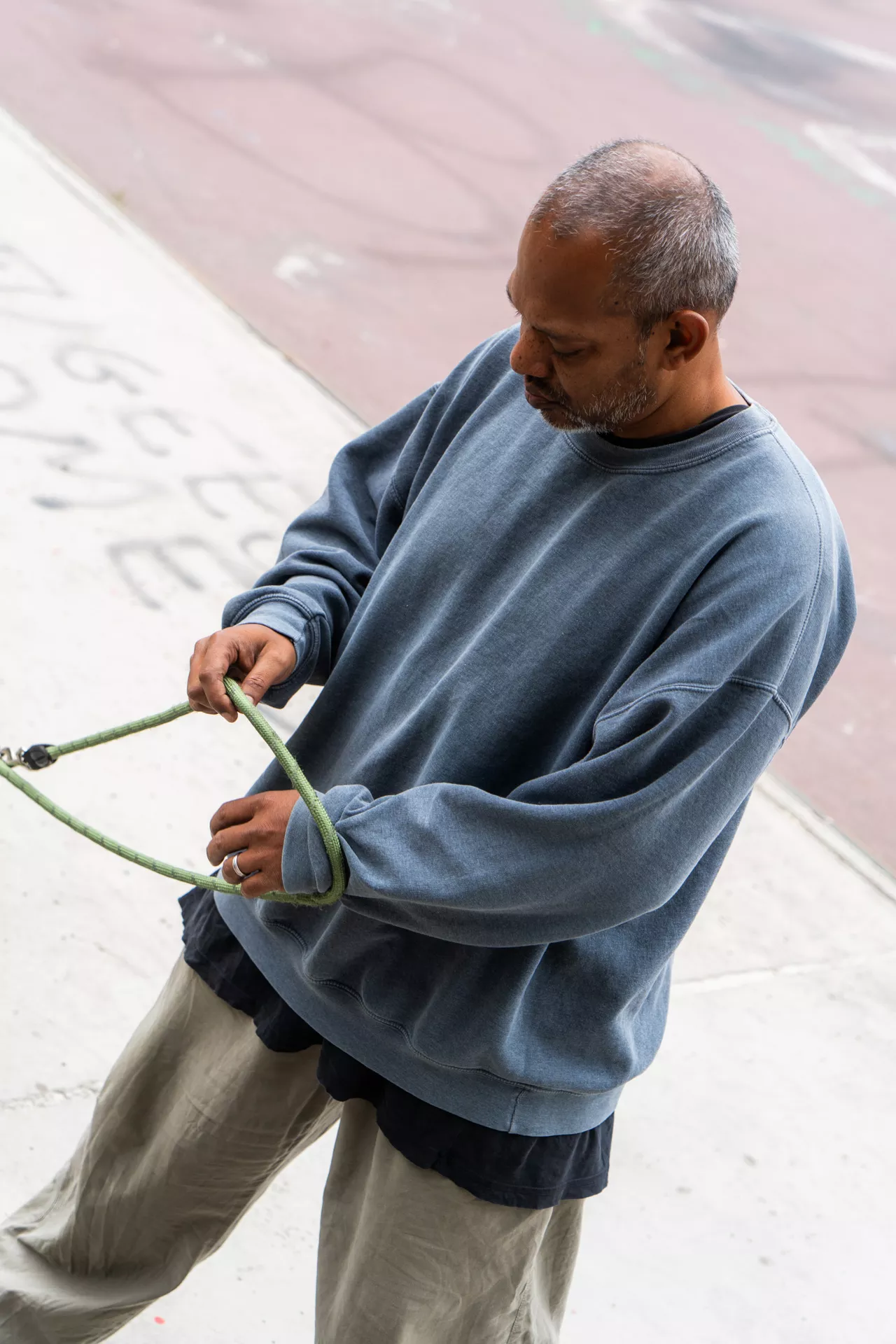On Friday, November 7, Fuse opens its doors to drum & bass, breaks, dub, and everything in between, as Listen Festival teams up with Brussels-based collective Breaxx.
Opened in 1994, Fuse quickly became Belgium’s temple of techno, but in its early years the club also looked across the Channel, programming fresh sounds from the UK. By the mid-90s, drum & bass was buzzing through its walls, with a string of standout bookings in 1997. The craze was short-lived, though: by 1998 Fuse had doubled down on techno, cementing its legendary status in that scene.
Still, there’s a clear line to be drawn between those days and today. Helping us trace the connections between drum & bass and Brussels across the past three decades are The Untouchables—the legendary producer outfit and DJ duo of Ajit Steyns (Nitrox) and Kate McGill (Kay). Performing at Fuse during this year’s Listen Festival, their story is an intriguing testimony to how music travels and how city scenes inspire one another.


Hello Kay, Nitrox. The Untouchables first appeared on club night flyers at the dawn of the millennium. How did you meet each other?
Kay: In the 1990s I used to run nights in Brussels with two other girls, called Pussy's Tracks. We did a few events at Jeugdhuis De Schakel in Sint-Lambrechts-Woluwe and at Magasin 4 in Laken. On one of those nights, I booked Nitrox and we got along straight away.
You grew up in Brussels, but you have British roots, don’t you?
Kay: I do. I was born in Brussels, but my parents are both British.
How did you get into electronic dance music?
Kay: I went to school with techno DJs like Deg, D-Jack, and Mike DMA. They took me along to techno nights and I got hooked. We’re talking about 1992, 1993.
Nitrox: The golden days! We used to go record shopping in Ghent, at USA Import in Antwerp, at Music Mania in Brussels… everywhere we could, we’d queue up for records.
What’s your story, Nitrox?
Nitrox: I grew up in Southeast Asia. I was adopted by my Belgian parents. I went to university in London, and when I came back I met Kay and her posse. From there, we kicked it off.
Kay: When we met, you used to be part of the outfit Universal Project, right?
Nitrox: Universal Project was a group I was part of in the late 90s, around ’98–’99, in London. It was four of us: Keaton, Ruxpin, Scandal, and myself. We were making drum and bass together, but eventually the group fell apart, and I went on to do my own thing here.






It’s fair to say that the UK had a profound impact on both your music tastes when you met in Brussels, right?
Nitrox: Yeah. We both really like dub music as well.
Kay: Definitely. We used to play jungle and drum and bass before doing what we do now. We’ve evolved, but we’ve kept those influences.
What did Brussels add to this?
Kay: I’d say it’s the techno influence in what we do. In Belgium, techno was really big back then, bigger than drum and bass. I used to listen to a lot of techno like Underground Resistance, R&S, and so on.
Nitrox: When I moved here, I saw a lot of DJs playing drum and bass, and everybody—including me—was playing the same new releases. But Kay had a very particular junglist vibe, very dubby, and I thought, “oh wow, she’s doing something different, not just following the trends”. I really liked that.
Kay: You just came to my place to record mixes and stuff, and then it started. You were like, “yeah, let’s do back-to-backs”, so we did, and it was fun. We haven’t stopped since.
You have quite an impressive discography as The Untouchables—Discogs counts 46 listings. Was music production part of your collaboration from the very start?
Kay: Pretty much. That was always the aim for me, anyway.
Nitrox: Yeah. Once we got the computer set up and started producing—getting all the pieces together and forming a little studio—we really got going. We started pretty much the following year.


How would you describe the scene you're part of? Can I call it the drum and bass scene, or would you say it’s larger than that?
Nitrox: It’s a derivative of drum and bass, but drum and bass is the big family. What we do is a bit niche. Our style is quite underground, we’re not trying to be mainstream. We don’t like to fall into that box where everyone just copies each other. Like our good friend and producer DJ Ink once said: if somebody puts a banana in their tune, suddenly everybody wants to make a banana tune. We try to avoid that. We just do our own thing—whatever we’re feeling at the moment, whatever’s influencing us right then.
Kay: We needed a certain amount of time to really find our style.
Nitrox: We broke free from the shackles of trying to make standard drum and bass, like sticking the snare on the two and four. Once we moved past that, it really kick-started everything and gave us a boost. Breaking free of the norm was what launched our style as The Untouchables.
I imagine you started out with vinyl records, because that was the main format at the time. Is that still the case? Is vinyl still important to you?
Kay: When we release music, yeah, it’s always nicer to have something tangible to remind you of your work. Digital feels a bit fleeting, like you don’t have anything to hold onto. We’re collectors, so we buy vinyl anyway.
Nitrox: We both still have our collections. Even today, whenever we buy music, we’ll get two copies, one for me and one for Kay.
Kay: But when we play in a club, it’s digital nowadays. About 80 to 90% of our sets are our own tracks, most of which are still unreleased.
Nitrox: But we always dig so there's always like say ten tunes that are from the crates, the old tunes.
I guess over these—let’s say now even 30 years—you’ve seen the genre go down underground, then rise up again. Do you reckon we’re in the middle of a drum and bass revival?
Nitrox: I think it’s more like a smaller wheel now. Back then you had techno, happy hardcore, and drum and bass coming along, those were really big, and then breakbeat came and went just as quickly. Later dubstep arrived and washed everything else away. Nowadays hip hop is still very big and jungle is making a comeback. The wheels just keep turning.
So instead of a few big wheels, you now have multiple smaller ones?
Nitrox: Yeah, exactly.






Are you pleased with a booking at a festival such as Listen Festival?
Kay: It’s always nice to play in our hometown, because we don’t actually play that much in Belgium—we play more in England, in Germany, or elsewhere. So it feels really good to be back in Brussels, especially in such a mythical place as Fuse. I went to a few drum and bass nights at Fuse back in the 1990s.
We’re here at Place Morichard. A skate spot of yours?
Nitrox: This is our little place, indeed. We live in this neighborhood and have been coming here for ages.
Kay: It’s become a bit mythical over the years. People started bringing modules and different things to skate with, and it’s always been a growing community.
Nitrox: We’ve known all the skaters since they were really young, when they first started coming here.
Is there a link between skating and your music?
Nitrox: A little bit. Sometimes we get inspired by the music in skate videos and then steal a little sample or a break and put it in our tracks.
Where does the name The Untouchables come from?
Kay: We actually started a group with some guys from Liège, called The Untouchable Mob. But we realized we didn’t share the same goals or aspirations, so Nitrox and I continued on our own. We decided to keep the name The Untouchables. We’re two different people, but we have the same vision, and we always find common ground. Even when we make music, we feed off each other’s ideas.
How do you feel about the line-up you’re part of at Fuse during Listen Festival, with Roni Size and Shy FX?
Kay: It’s such an honor! Shy FX—the Original Nuttah! (laughs)
Nitrox: They’re legends. Roni Size’s album New Forms is a masterpiece. We’ve never met them, so we feel very privileged to be on the same line-up.
Lovely. See you at Fuse!

